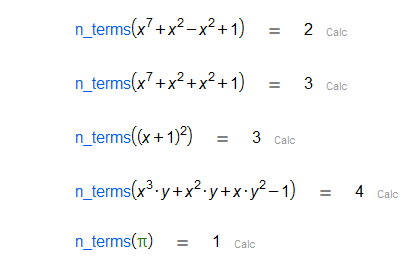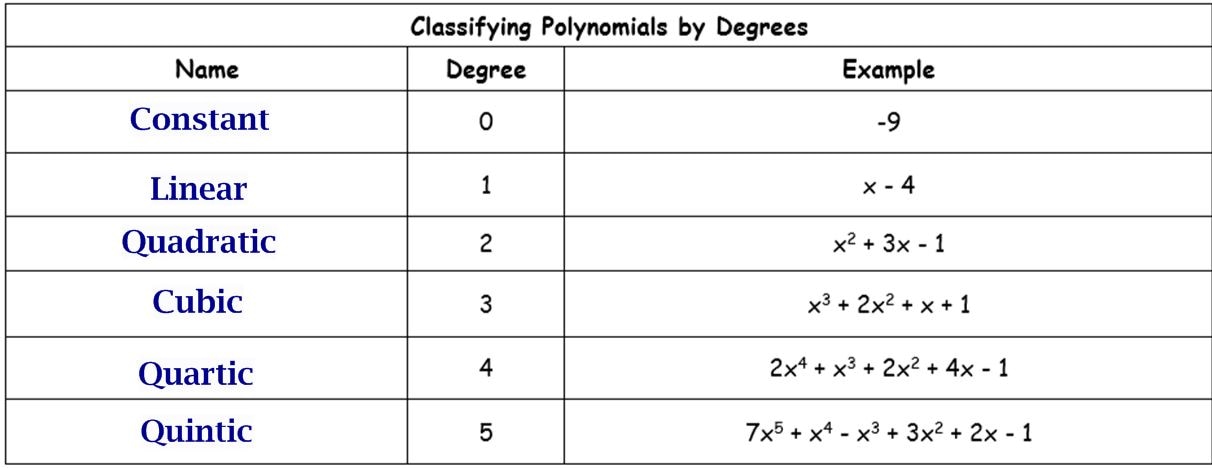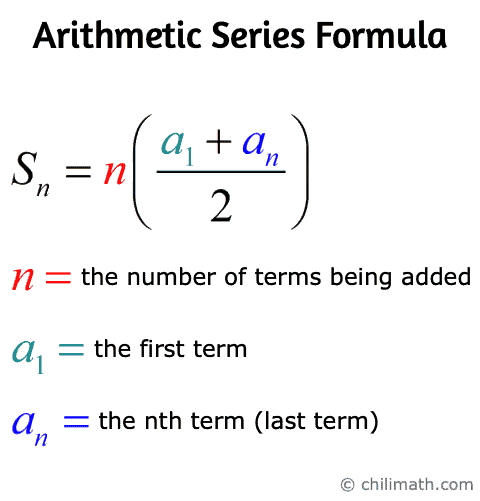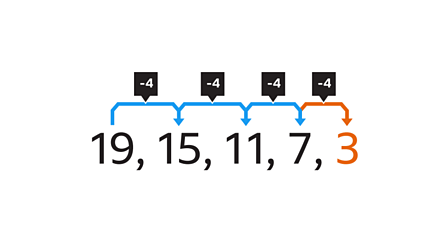
Question Video: Finding the Number of Terms in a Given Arithmetic Sequence given the Sum of All Terms and the Values of Its First and Last Terms | Nagwa

Drag each label to the correct location on the table. Each label can be used more than once, but not all - Brainly.com

💯 √ Finding the Number of Terms of Arithmetic Sequences Explained. Watch this Video to Find out How! - YouTube

Math Time - Types Of Polynomials : -->> A) Number Of Terms In Polynomial. B) The Degree Of Polynomial. | Facebook

Question Video: Finding the Number of Terms in a Given Arithmetic Sequence given the Sum of All Terms | Nagwa



















